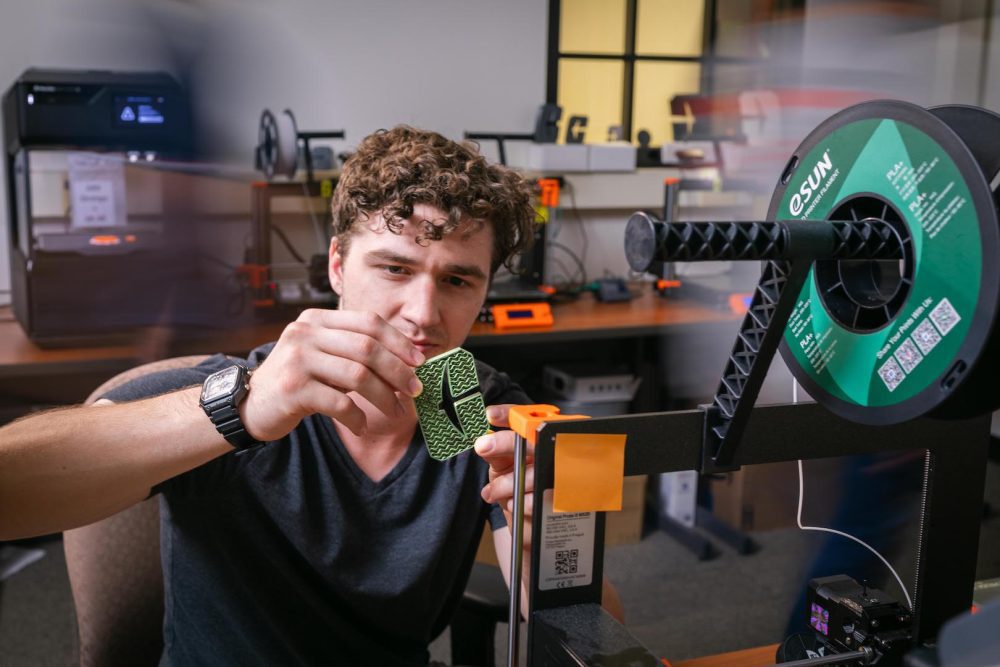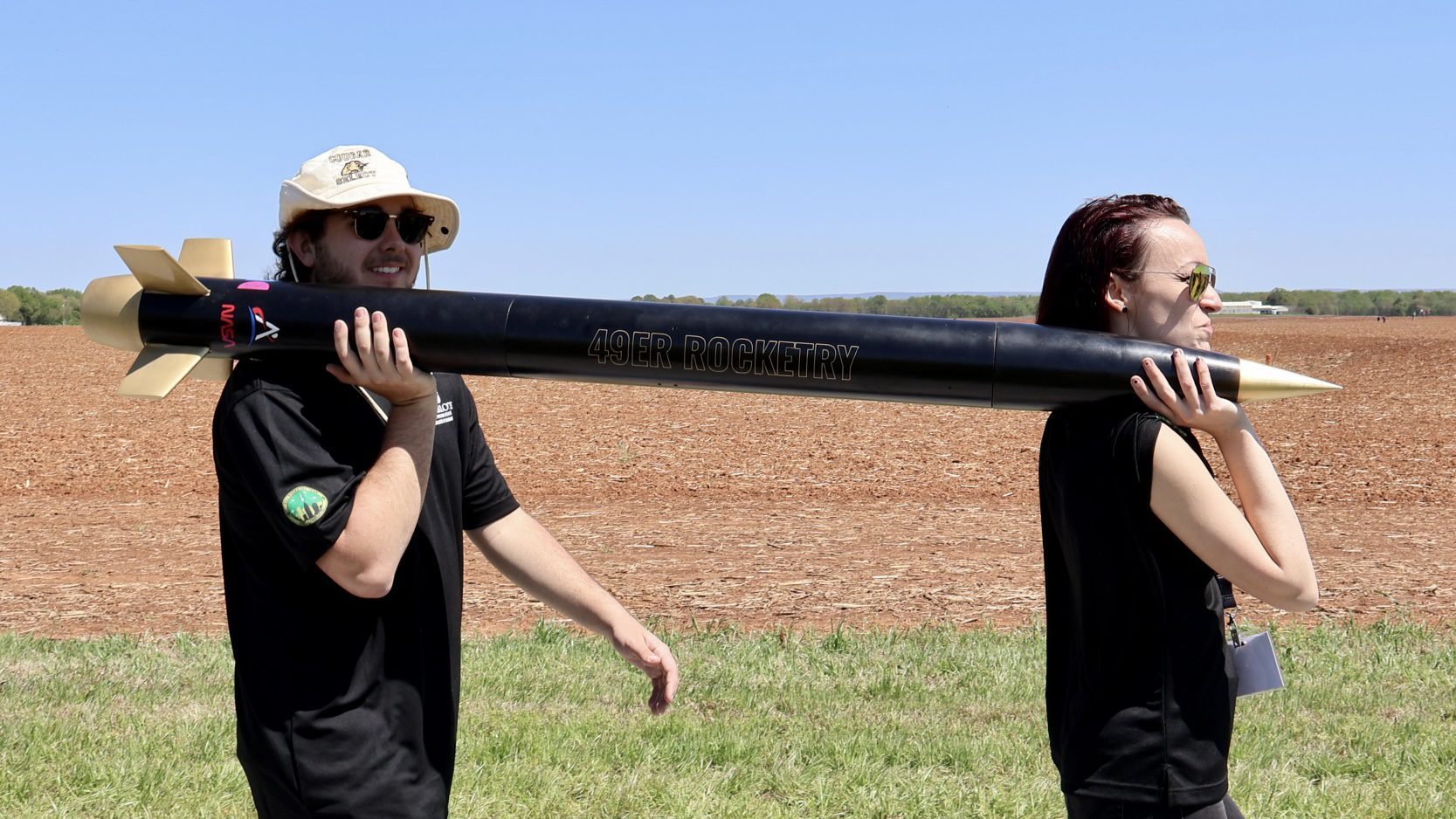Forge Your Future at Charlotte



Welcome to the William States Lee College of Engineering…
Where The Only Thing Missing…
…Is YOU!
No Limits,
Just Beginnings
Fill out the form to get in contact with
Admissions, Tours, Advisors and more.
Why A CHARLOTTE engineering Degree?
A degree from William States Lee College of Engineering isn’t just about learning; it’s about creating the future. With cutting-edge technology and industry connections, you’ll be part of something bigger.
70%
of students take advantage of internships or co-ops
80%
of senior design projects are supported and mentored by industry
90%
of students have jobs or are in graduate school by graduation
We pride ourselves on making our graduates “Real World Ready”, and while there are a lot things we do to make that happen, three stand out.

Hands-On
Learning
From the first year courses to the final year-long industry-sponsored senior design projects, our students engage in practical, real-world projects, ensuring they graduate with invaluable experience.

Industry
Partnerships
Whether it is sponsoring internships and co-ops to conducting guest lectures and on-site tours, our industry partners aren’t just present.
They are engaged from Day 1.

Technical
Concentrations
For those students looking to focus on specific subjects, we offer a variety of technical elective concentrations in subjects from energy to biomedical engineering to machine learning.
Choose your path
The William States Lee College of Engineering is the perfect place for you to begin your engineering journey. Click on the expansion icons below to learn more about each one of our programs.
Civil Engineering
Civil engineers design and supervise construction of bridges, buildings, roads and other structures. They may focus on transportation, environmental, structures or geotechnical projects. Environmental engineers design systems and solutions that prevent or remediate pollution of the air, soil and water. They promote public health through infrastructure and treatment systems that provide potable water, treat wastewater, and manage solid waste. Environmental engineers also design and use models to assess the environmental impact of current and/or proposed actions.
Concentrations of Choice:
- Energy
- Land Development
Civil Engineering Technology
Civil engineering technologists perform technical work and provide supervision in construction of buildings, bridges, roads and residential developments. They may work for state or federal departments of transportation, engineering or architectural firms or environmental and health agencies.
Concentration of Choice:
- Energy
Computer Engineering
Computer engineers design, construct and develop operational systems for computers in business and everyday life. They work with digital systems, operating systems, computer networks, software and hardware to bring electronic items to life.
Concentrations of Choice:
- Machine Learning
Construction Management
Construction managers plan and coordinate construction projects for buildings, residential housing, roads, bridges and other community infrastructure. They are involved in hiring, budget management and setting project timelines. At UNC Charlotte, construction management majors complete core technical and business coursework.
Concentrations of Choice:
- Energy
Environmental Engineering
Environmental engineering is a specialized branch of civil engineering focused on designing systems and solutions to prevent or remediate pollution in the air, soil, and water. Engineers play a crucial role in protecting public health by developing infrastructure and treatment systems that provide clean, potable water, effectively treat wastewater, and manage solid waste. Their work often involves designing and using models to assess the environmental impact of existing or proposed projects, ensuring that human activity minimizes harm to natural ecosystems while promoting sustainable development.
Concentrations of Choice:
- Energy
Electrical Engineering
Electrical engineers study electricity and identify ways to generate power that can be used in homes and businesses. They are also involved in the development of equipment and personal devices that use energy such as cell phones.
Concentrations of Choice:
- Energy
- Machine Learning
Electromechanical Engineering Technology
Electromechanical Engineering Technology graduates thrive at the intersection of electrical and mechanical engineering, integrating and improving new technologies in the automation, robotics and power industries.
*As of July 2024, Electrical Engineering Technology becomes Electromechanical Engineering Technology
Concentrations of Choice:
- Energy
Fire and Safety Engineering Technology
Fire and safety graduates fight fire, perform technical rescue, provide emergency medical care, perform safety inspections, teach fire prevention, investigate fires and explosions and design fire detection and suppression systems. They may work in fire departments or in the private sector for fire protection firms or loss prevention companies.
Concentrations of Choice:
- Fire Safety
- Occupational Safety
Industrial and Systems Engineering
Industrial and systems engineers create and execute processes to ensure that organizations can meet customer and stakeholder needs in a cost-effective, safe and timely manner. They develop efficient ways to accomplish goals in various industries.
Concentrations of Choice:
- Energy
Mechanical Engineering
Mechanical engineers design machinery and personal products with moveable parts. This includes everything from automobiles to robots to air conditioning systems for buildings. It is a broad field that also branches into areas such as medicine and nanotechnology.
Concentrations of Choice:
- Biomedical
- Energy
- Motorsports
- Precision Metrology
Mechanical Engineering Technology
Mechanical engineering technology graduates design, build, and maintain a wide variety of machines, cars, jet fighters and other high-tech devices and systems. Some typical job titles of graduates include computer-aided designer, plant maintenance supervisor, materials testing technologist and quality control engineer.
Concentrations of Choice:
- Energy
Award-winning student organizations
Niner Engineers aren’t just successful in the classroom. We have some of the best competition teams in the country, so whether you want to race a Formula SAE cart you built from the ground up in the Kulwicki Motorsports Lab, build a rocket from scratch for the NASA Student Launch, or test the limits of civil engineering in ASCE’s Concrete Canoe competition, we have the PERFECT spot for you!
TAKE THE NEXT STEP


